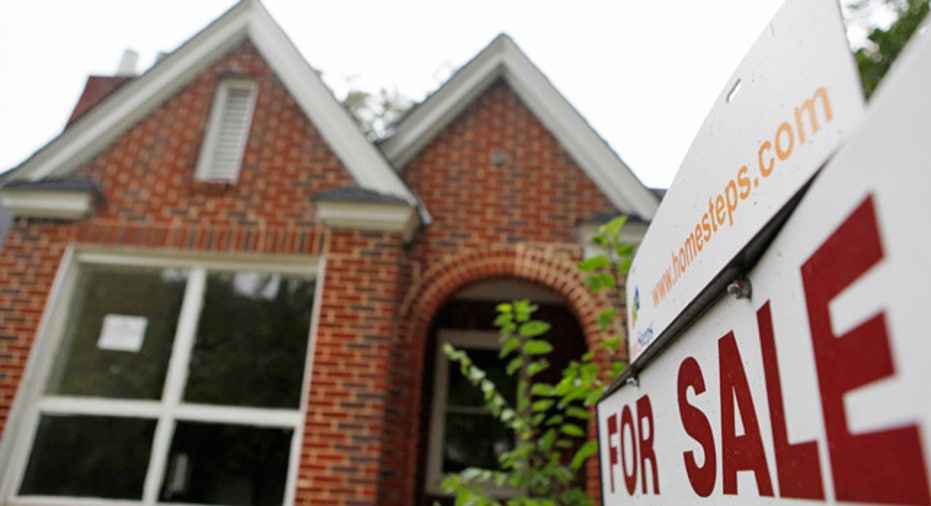Avoid These Chilling Homebuying Surprises

Homebuyer, beware the skeletons in the closet.
The house you're eyeing might hide some spooky secrets -- perhaps a murder that happened upstairs, a body buried in the backyard or even a ghost in the basement. You might or might not find out about these through disclosures during the purchasing process. But you don't have to be caught off guard by these nasty homebuying surprises.
According to the National Association of Realtors, 47 states and Washington, D.C., have laws requiring sellers or listing agents to disclose or answer questions about a property's condition or home's history, which could include death, violence or mysterious things that go bump in the night.
The laws vary in stringency in each state, but many Realtors believe it's just good business to be upfront.
"I don't want anybody to find out something negative about a house that I sold whether I knew it or not, because it's going to hurt my reputation," says Diane Saatchi, associate broker and senior vice president at Saunders & Associates in Bridgehampton, N.Y. "And more important than that, it would make the buyer uncomfortable."
Got a creepy feeling about a house you just can't shake? The first step is to check your state and local government's laws on what must be disclosed to you as the buyer. Ask Realtors to explain the laws. Then conduct your own investigation using Google and the city's newspaper archive at the library, Saatchi says.
Also, many police reports are public record, so search the address of the house to see whether it's listed as a crime scene. Then knock on doors.
"Here's your best source of information for any buyer: the neighbors," says Joan Cota, broker and owner of RE/MAX Professionals in Sioux Falls, S.D. Sometimes you must take what they say lightly, she says, but neighbors may tell you what you need to know.
Haunted or Coincidence?
And sometimes, the ghouls will alert you.
Bob Davis, a Realtor in Brandon, Fla., says he bought a mobile home and lot as investment property about 10 years ago. Last year, he got a call from the tenant, who identified herself as a medium who can communicate with the deceased. She said she kept hearing sounds, voices and screaming. She asked whether someone had been killed on the site.
"I told her that, as a matter of fact, somebody had been killed there," Davis says. "But it was in another mobile home that was on the same lot, and I had since changed it out. It was very odd. It makes you wonder."
As a Realtor in Florida, Davis didn't have the duty to disclose the death, but he did disclose when asked. But in states such as South Dakota, sellers must provide information about murder, suicide or any other felony that occurred in the past 12 months, Cota says.
Digging for Bottom-Barrel Prices
Some people who hear about a home's violent history aren't worried about a haunting, says Mary Pope-Handy, a Realtor in Los Gatos, Calif., who sells normal houses but blogs about haunted real estate.
"Most of the time when people ask me to help them buy a haunted house, it's because they think they're going to pay 10 cents on the dollar for it," she says. "They're really bargain hunters."
It's true that the prices of stigmatized houses can be dramatically affected. In 2000, two Wright State University professors conducted a study on what they called "psychologically impacted" houses. They looked at sales across Ohio and found that stigmatized homes sold for about 3% less than nonaffected ones but languished on the market about 45% longer.
Many times, the price difference is more dramatic than a 3% dip.
Take Davis' example. He is trying to sell a foreclosed home in southwestern Florida. Usually this upgraded house on the water in an upscale St. Petersburg, Fla., neighborhood could sell for about $400,000 if there were no issues. But he guesses that it might go for a meager $75,000.
Blame it on the American Indian burial ground in the backyard.
"(The house) is worth essentially nothing right now," Davis says. "It's too close to the Indian burial ground, and the home should not have been built. I don't know how they got a certificate of occupancy because you need permitting and all that stuff to build a home."
He guesses the Indians were Calusa or Seminole, but either way, he must disclose the burial ground because it's a material fact about the physical condition of the property. The buyer will need to move the house to another location, he says.
Another Turn at Bat
Even in states where sellers and listing agents aren't required to disclose certain facts, homebuyers may have legal recourse if they believe the house has been misrepresented.
That can include an undisclosed infestation of bats. In the Sioux Falls, S.D., area, a bank-owned house became the new home to a colony of the critters. They swooped down and chased out an inspector, who "feared for his life" during a routine check, Cota says.
"The buyers wrote a letter to the bank and wanted out of the contract, and the bank gave them their earnest money back," she says.
However, Cota says, another family found bats in a different house and simply paid to have them removed.
"What bothers one person doesn't bother the next person," Cota says. "That's just true with anything in real estate."



















